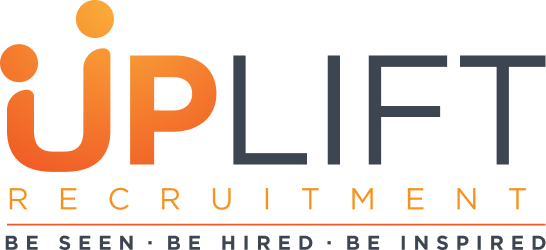
How Cultivating Creativity Will Boost Your Career
As we return to our normal schedules and duties post COVID-19, many people will find it difficult to get back into the swing of things. Self-care in the form of time for ourselves, exercise, eating right, and routine will help get us back on track. But what if you feel you’ve lost the “spark” that makes you the best at what you do? What if you show up to your computer screen and just stare blankly? What can you do to get your creative mojo back?
The Uplift Recruitment team believes in balance and keeping up with your passions outside of work as your life depends on it. Many of us have got exercise, healthy eating, and even meditation covered. But there’s one missing ingredient that may just jumpstart your brain. Unfortunately, you can’t take an incredible pill like Bradley Cooper in Limitless to get your groove back if you feel like you’ve run out of good ideas. The only magic solution we’ve found is to get creative.
What’s art, craft, music, dance, or theatre got to do with your career? Turns out, heaps! It doesn’t matter whether you’re looking for a post-Corona position or comfortably settled in your dream job, creative endeavours outside of your professional calling can boost your day-to-day performance at work.
So here’s the plan: just pick something! Your creative outlet could be playing the guitar, learning pottery, watercolour painting, salsa dancing, cooking, sculpture, woodwork, knitting, sewing, scrapbooking, or improv. Try anything once or twice, if you like it to keep going. If you hate it, move on to the next thing.

Follow This Plan to Spark Your Creative Genius
- Make Learning New Things a Habit: You won’t go anywhere unless you start somewhere. If you’ve never picked up a creative pastime like drawing, music, photography, or craft, block out some time in your calendar and draft a plan to learn a new skill. Online learning resources like Creative Live, Lynda, or even YouTube are full of videos that will teach you to do everything from fashion photography to cake decorating. Once you’ve figured out how you are going to learn your new creative skill, schedule it. Try setting aside 30 minutes a day to practice. Before you know it, you’ll have a new skill and be on your way to using creativity in your career.
- Practice Mastery Through Teaching: Let’s say you’ve been honing your creative flow for a long time and you’ve already got some mad skills in your chosen medium. Try teaching what you know to someone. Even if you’re a newbie, you can reinforce your knowledge by explaining what you’ve learned to your mum, dad, partner, or kids. As the saying goes, “to teach is to learn twice.”
- Supercharge Your Imagination: Don’t quit your daydream. Remember when you were young, and you spent all day creating fantasy worlds and imaginary friends? Try to get some of that imaginative inspiration back through meditation, doodling, journaling, and daydreaming. Let your imagination run wild and you’ll soon be an ‘out-of-the-box’ thinker around the office.
Don’t Miss Your Connection to Creativity
Missed connections are the bane of creative, successful existence. As Apple guru, Steve Jobs, explained, “creativity is just connecting things. When you ask creative people how they did something, they feel a little guilty because they didn’t really do it, they just saw something. It seemed obvious to them after a while. That’s because they were able to connect experiences they’ve had and synthesize new things. And the reason they were able to do that was that they’ve had more experiences or they have thought more about their experiences than other people.”
If your internal creative department feels empty and barren, you probably cannot generate new and novel ideas for your job or life. You may notice colleagues boosting ahead of you to grab promotions and pay rises as they develop new systems, concepts, and products that employers love. You may also fail to recognize the underlying emotions of co-workers and clients. That’s because a person’s emotional intelligence is linked to their creativity. You most likely have noticed that you’re missing something, but can’t quite put your finger on the missing link. This is no coincidence because without cultivating creativity, your ability to make connections is seriously diminished!
Behold the Fruits of a Creative Practice
So what can you expect if you commit to 30 minutes a day to your creative practice?

Creativity Promotes Neurological Connectivity
Creativity sets the stage for innovation in other parts of our lives by instigating neurological connections and increasing cooperation between parts of our brains. The wild and crazy ideas you get while creating can spark spontaneous ideas in other parts of your life, like at work. If you are interested in learning more about your brain on creativity, watch this video: https://youtu.be/9CwyqtwtMHM. The gist is that neurons that fire together, wire together. Also, you can deliberately strengthen your ideation muscle and add to the webs of information and experience with creative practice.
Creativity Increases Emotional Intelligence
As we’ve mentioned in previous articles, emotional intelligence is increasingly required by hiring managers across all fields. Workers with high EI are more effective and more likely to be retained by a company over the long run. One method of increasing prized EI skills like empathy, intuition, and understanding your emotions and those of others, is being creative. Studies have found a direct correlation between people with high EI and high levels of creativity. Thus outside of work, priming your creative ability by making, performing, building, etc., should increase your emotional intelligence. Another upside is that people with high emotional intelligence tend to have higher self-esteem. So create away and prepare to understand the emotions of others better and feel better about yourself.
Creativity Boosts On Job Performance and Reduces Stress
It is well documented that creativity can help treat stress and PTSD, but studies show that creativity enhances job performance, According to Kevin Eschleman, (an assistant professor of psychology who studied the effect of creativity on military and healthcare personnel in stressful positions), “creative pursuits away from work seem to have a direct effect on factors such as creative problem solving and helping others while on the job.” If you want to be recognized for creative thinking and problem-solving at work, start at home.
Start Creating Today
Uplift Recruitment believes creativity to be a great way to prime our brains to be more effective, understanding, and innovative on the job. Taking up whatever you’re interested in, setting up a time to explore your interest, and practising regularly, can help you avoid the dreaded blank screen and give you a leg up in your role. Art, music, cooking, building, etc. is also proven to reduce stress and help you cope with the demands of a busy life and a demanding job. Without deliberately trying, your creative practice may help you make connections in other parts of your life that will take you way beyond what you imagined.
